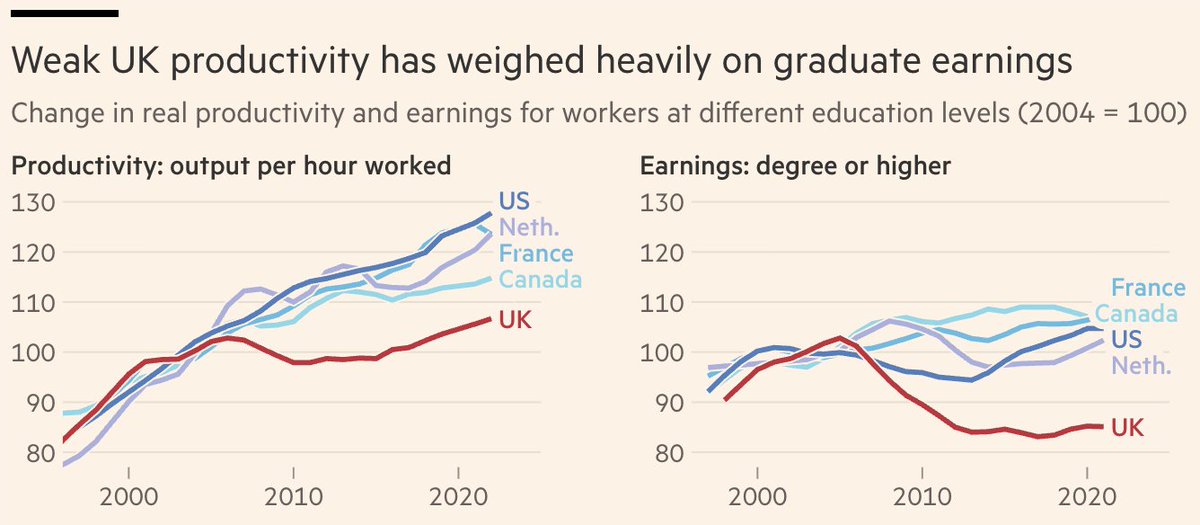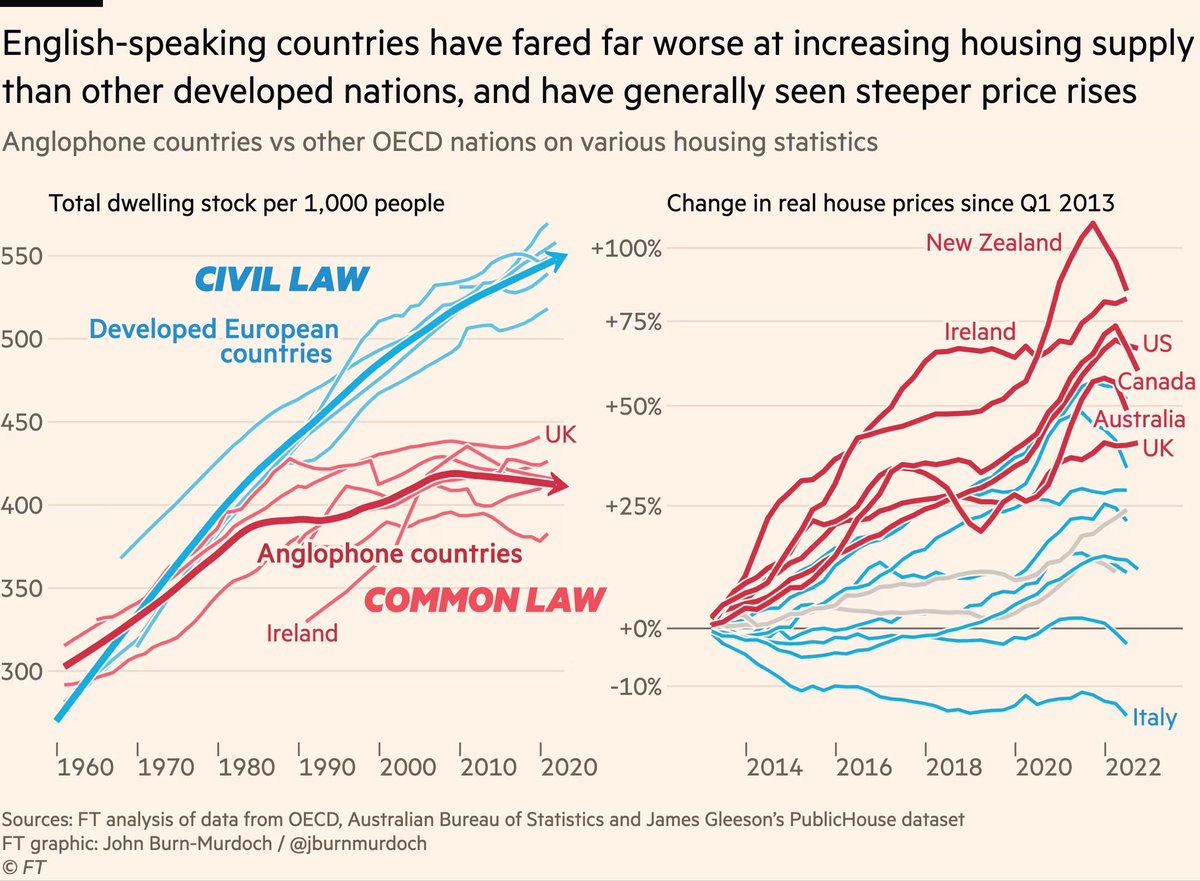NEW 🧵: Is human intelligence starting to decline?
Recent results from major international tests show that the average person’s capacity to process information, use reasoning and solve novel problems has been falling since around the mid 2010s.
What should we make of this?
Recent results from major international tests show that the average person’s capacity to process information, use reasoning and solve novel problems has been falling since around the mid 2010s.
What should we make of this?

Nobody would argue that the fundamental biology of the human brain has changed in that time span. People’s underlying intellectual capacity is surely undimmed.
But there is growing evidence that the extent to which people can practically apply that capacity has been diminishing.
But there is growing evidence that the extent to which people can practically apply that capacity has been diminishing.
For such an important topic, there’s remarkably little long-term data on attention spans, focus etc.
But one source that has consistently tracked this is the Monitoring The Future survey, which finds a steep rise in the % of people struggling to concentrate or learn new things.
But one source that has consistently tracked this is the Monitoring The Future survey, which finds a steep rise in the % of people struggling to concentrate or learn new things.

One argument is that this is downstream of the decline in reading. As people’s information diet shifts from longer and more complex texts to short snippets, and from text to video, people’s effective literacy levels decline. 

That dynamic is almost certainly part of what we’re seeing here, but it’s notable that we don’t just see declines in literacy, but numeracy and other forms of problem-solving too.
This suggests a broader erosion in people’s capacity for mental focus and application.
This suggests a broader erosion in people’s capacity for mental focus and application.
Some of the statistics here are eye-opening:
The share of adults in high-income countries who are unable to use mathematical reasoning when evaluating simple statements, or who struggle to integrate multiple bits of information from a piece of text, has climbed to 25 per cent.
The share of adults in high-income countries who are unable to use mathematical reasoning when evaluating simple statements, or who struggle to integrate multiple bits of information from a piece of text, has climbed to 25 per cent.

Most discussion about the societal impacts of digital media focuses on the rise of smartphones and social media, but I think that’s simultaneously an incomplete explanation, and one that lumps together benign/positive use of digital technologies with the more problematic.
I would point to something more fundamental: a change in the relationship between our brains and information.
The way we used smartphones and social media in the early 2010s was different to today. Usage was largely active, self-directed. You were still engaging your brain.
The way we used smartphones and social media in the early 2010s was different to today. Usage was largely active, self-directed. You were still engaging your brain.
But since then we’ve had:
• The transition from the social graph (seeing a selection of content from people you know and actively engage with) to algorithms (an infinite torrent of the most engaging content in the world, with much less active participation)
• The transition from the social graph (seeing a selection of content from people you know and actively engage with) to algorithms (an infinite torrent of the most engaging content in the world, with much less active participation)
• The shift from articles (longer material that requires the reader to synthesise, make inferences and reflect) to short self-contained posts (everything is pre-packaged in a few sentences, no critical thought required)
• An explosion in the volume and frequency of notifications, each one at risk of pulling you away from what you were previously doing (or taking up some headspace even if you ignore it)
Research finds that active, intentional use of digital technologies is often benign or even beneficial.
But passive use and interruptions have been linked to negative impacts on everything from our ability to process verbal information, to working memory and self-regulation.
But passive use and interruptions have been linked to negative impacts on everything from our ability to process verbal information, to working memory and self-regulation.
This would line up with the fact that we see not only declining literacy, but deteriorations across a range of different knowledge domains, as well as that increase challenges with broader cognitive functioning.
I don’t want to be too doomy here.
The declines are far from universal. Some people are really struggling, others seem largely unaffected.
And the underlying human brain power is still there. There’s good evidence that people can be re-trained into applying it more effectively.
The declines are far from universal. Some people are really struggling, others seem largely unaffected.
And the underlying human brain power is still there. There’s good evidence that people can be re-trained into applying it more effectively.
But outcomes are a function of both potential and execution. And the signs are that for too many of us the digital environment is hampering the latter.
Here’s my article in full: ft.com/content/a8016c…
Here’s my article in full: ft.com/content/a8016c…
• • •
Missing some Tweet in this thread? You can try to
force a refresh











